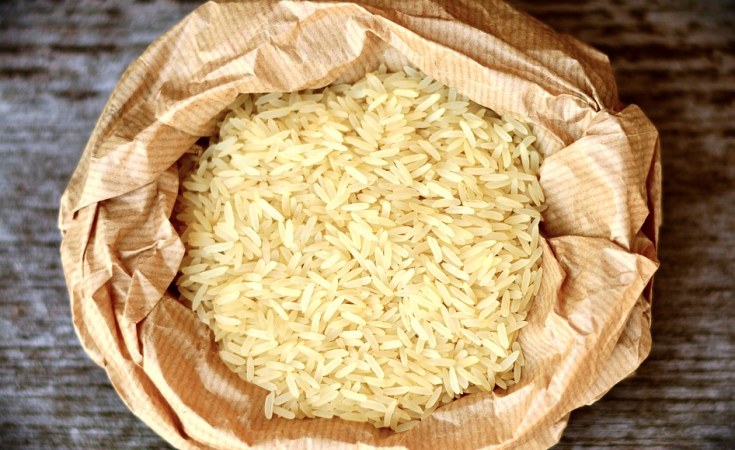Earlier this year, a new US$20M potato chip production line opened in Ethiopia with an annual capacity of 25,000 tonnes — 250 billion more chips coming to consumers every year. The processes that turn potatoes into a crunchy, salty, fatty snack food are commonly referred to as “value addition,” and are practically a mantra for food system development. They are seen as improving taste and convenience for consumers and profits for producers. Yet too often, so-called value-addition practices are actually value-destroying: many of them contribute to poor diets and health or harm the environment.
Potato chips, for example—like most ultra-processed foods—are high in empty calories and additives and low in nutrients. Consuming too much of these unhealthy foods can lead to obesity, heart disease, diabetes, and other health problems. Indeed, such diet-related noncommunicable diseases (NCDs) are on the rise in Africa, increasing health care costs and decreasing years of productive life. Already, more than one-third of deaths across Africa are due to NCDs , which may account for over half of all deaths in sub-Saharan Africa by 2030.
Factories like the one in Ethiopia make their profits via “value addition.” But we should be thinking about value more broadly and encouraging the right kind of value—the kind that prioritizes healthy people, communities, and environments.
Uncovering hidden costs and benefits
The good news is that an emerging tool, True Cost Accounting (TCA) , or True Value of Food Analysis, can help estimate all these costs and benefits, including those that may be hidden. In the United States, TCA showed that for every $1 spent on food, there were unaccounted costs of $2 to society due to poor diet quality, environmental impacts, and biodiversity loss. Applying TCA can guide food system actors toward food products that support businesses, people, and the planet.
For example, contrary to popular belief, refining grains reduces their value to society. It lowers their nutritional content, increases their glycaemic index, and shrinks the amount of food available by wasting 20-40% most nutritious parts of the grain. By contrast, the same amount of whole grain foods can be produced using 20-30% less land, water, and fertilizer, and emitting 5-15% less greenhouse gases. Moreover, by further enriching whole grain foods with fortification–a genuine form of value addition–one can produce, for instance, fortified whole maize flour that is five times more nutritious than refined flour, yet costs the same.
No wonder many schools in Rwanda, Kenya, and Burundi are already switching from refined to fortified whole grain products in their meals. A TCA study conducted in Rwanda, Kenya, and Ghana showed that a shift in school meal programs from refined to fortified whole grain foods could benefit over 15 million students, with potential annual societal benefits of some US$250M in health, environmental, biodiversity, and other economic impacts.
Upcycling and smart processing
Upcycling is another approach that adds true value. It transforms food byproducts or waste into high-value food items. For example, brewers’ spent grain from beer production can be blended with fortified whole grain flours to make even more nutritious, cost-effective, and climate-friendly foods. Thus, upcycling can not only ease the environmental impact of food systems, promoting a circular economy but also enhance nutrition and health. Recognizing this potential, one of the largest millers in East Africa is exploring upcycling.
True value addition in food production can also have significant socioeconomic impacts. One example is quick-cooking packaged beans. Beans are a nutritious component of the African diet, but their preparation takes hours out of a woman’s day. And because most households rely on firewood for cooking energy, bean cooking contributes to deforestation. But the Farmfresh Food Company , based in Rwanda, is precooking beans at scale, using clean fuel, and reducing household cooking time by 90%. Furthermore, its iron-biofortified beans, sourced from local smallholder farmers, are helping reduce anaemia. The value addition is thus fourfold: net positive value to the company, farmers, consumers, and the environment.
Rethinking value addition
Outdated notions of value addition have contributed to the current state of food systems: poor diets, environmental damage, and inequities along value chains. By approaching “value” holistically and bringing to the surface all the costs and benefits of what we do with food, we will make better decisions that benefit society as a whole. Governments, businesses, farmers, and consumers will be empowered to make improved choices on policy, subsidies, food purchasing, value chain practices, and spending.
By embracing the principle of true value addition across all aspects of our food system, we can steer that system toward a future that is nourishing, sustainable, and equitable. We have the tools now–it’s time to use them.
Peiman Milani is a director of the Food Initiative at the Rockefeller Foundation and Amos Laar is a professor of public health nutrition at the University of Ghana.


